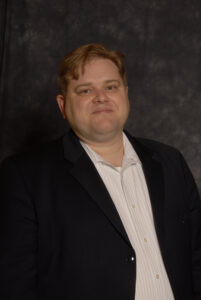Our guest today is Mike Standish, co-founder of Radical Polymers. Mike has  over 28 years experience in polymer additive design and development. Prior to forming Radical Polymers, Mike served in technical and business leadership roles within global, publicly traded chemical companies and is responsible for the development and patenting of industry leading polymers for use in the water treatment, oilfield and detergent industries.
over 28 years experience in polymer additive design and development. Prior to forming Radical Polymers, Mike served in technical and business leadership roles within global, publicly traded chemical companies and is responsible for the development and patenting of industry leading polymers for use in the water treatment, oilfield and detergent industries.
In this episode Mike will be talking about what we need to know about polymers and also how we can take all of those categories and lump them into three simple categories so we know what they do based on functional groups.
And we talk about Stack Temperatures on boilers.
Stack Temperatures
If you’re concerned with your boiler system in terms of efficiency, you need to record your stack temperatures. Stack temperatures is simply the temperature of the gas, the exhaust, after the heat goes through the boiler and exhausts out. There is a thermometer located on the stack to let us know what the temperature is. You are responsible for making sure you’re taking care of the entire system. That stack temperature is a look inside that boiler to see how efficient you are. If you just get one stack temperature it’s not going to tell you anything, over time, if you and your customer are recording those stack temperatures you’ll be able to see if those temperatures are staying the same, getting hotter or if it’s getting cooler.
If it’s getting cooler, it tells us that we’re transferring more heat from the inside of those tubes to the outside where the the water is. That’s good. If it’s getting hotter, it tells us that there’s something on those tubes that’s insulating that heat inside that tube so we can’t transfer it out. That might be an indication that we’re starting to scale some ion inside the system. If we ran the proper test we should be able to look back and see exactly what’s going on. If you don’t keep track of your stack temperatures you’re never going to know what they’re telling you.
Timestamps:
How Mike got into the water treatment industry [11:30]
Hear about Mike’s rollercoaster ride of starting his own company [12:45]
Why Mike spent the first year doing only product development and not selling anything [14:18]
Family run businesses in the water treatment industry and how Mike makes it work [14:56]
Mike tells us how his business helps people with mineral scale control and corrosion issues [16:45]
Learn how polymer is derived from greek, poly meaning many and mer meaning unit [18:54]
The definition of a polymer, according to Mike [20:15]
The different nuances in the way that polymers are put together and initiators used [20:34]
Mike tells us how there are hundreds of polymers out there [21:49]
The three different types of building blocks: carboxylates, sultanates and or non-ionics [22:38]
The most economical raw materials out of the three [23:49]
Why most polymers people buy are heavily weighted with carboxylated monomers [24:37]
Where Sultanates tend to be employed most [24:45]
Understand how Non-ionics are more nuanced and they are used to enhanced properties [25:08]
Why to never buy or select products based on opposition alone [26:00]
How adding functionalities increase the efficacy of the products for different types of scale [26:40]
Median molecular weight and the weight difference for polymers and small molecules [28:00]
Going beyond the marketing material and engaging directly with the supplier [30:10]
Why polymers are not discrete molecules [45:16]
Quotes:
“People should always start with the problem and work their way back to the polymer selection.” – Mike Standish
“The key is to fit the right polymer with the right application.” – Mike Standish
“If you don’t keep track of your stack temperatures you’re never going to know what they’re telling you.” – Trace Blackmore
Connect with Mike Standish:
LinkedIn: https://www.linkedin.com/in/mike-standish-7890627/
Twitter: @RadicalPolymers
Website: radicalpolymers.com
Links Mentioned:
2015 AWT Paper – Mike Standish – Rules of Three…Simplifying Polymers
Books Mentioned:
The Operator – Robert O’Neill


Mike is one of those presenters that you’d listen to even if he was reading from a phone book. He’s well spoken and always highly informative in very relatable terms. Good guest!